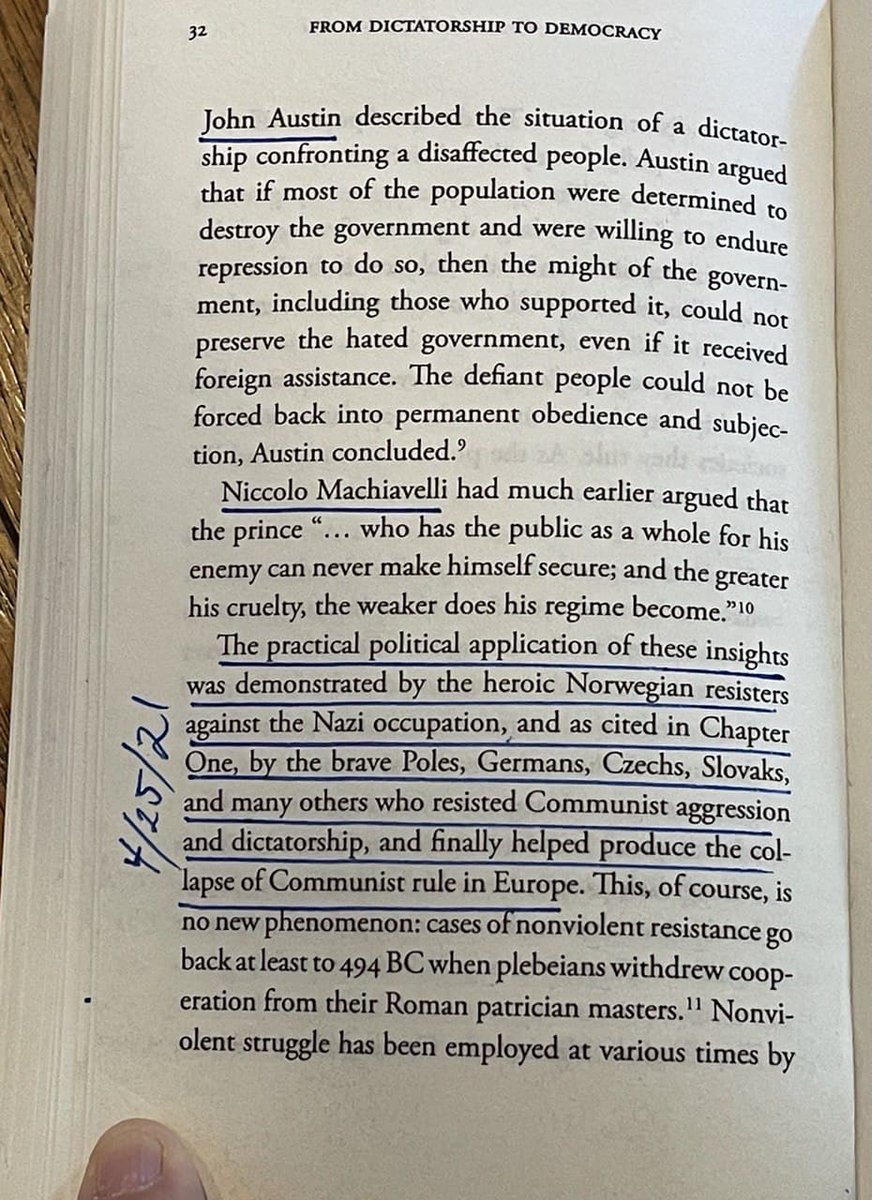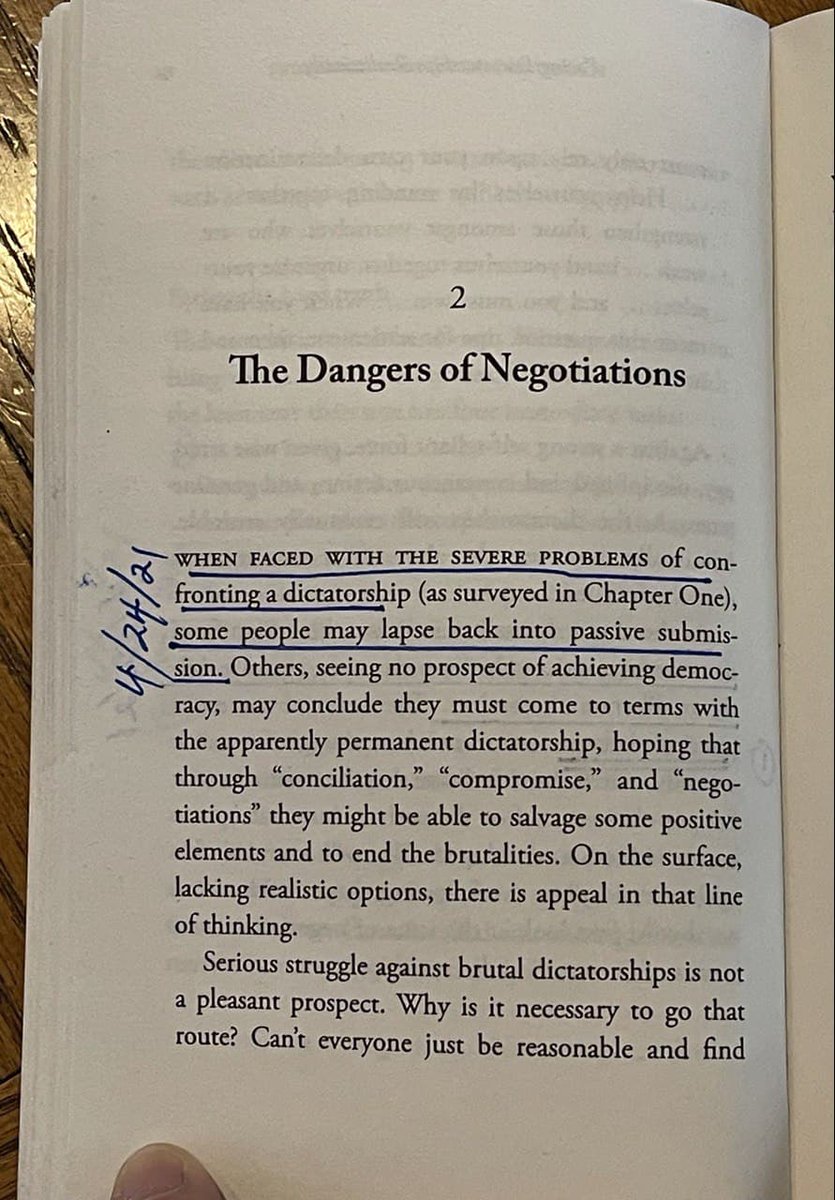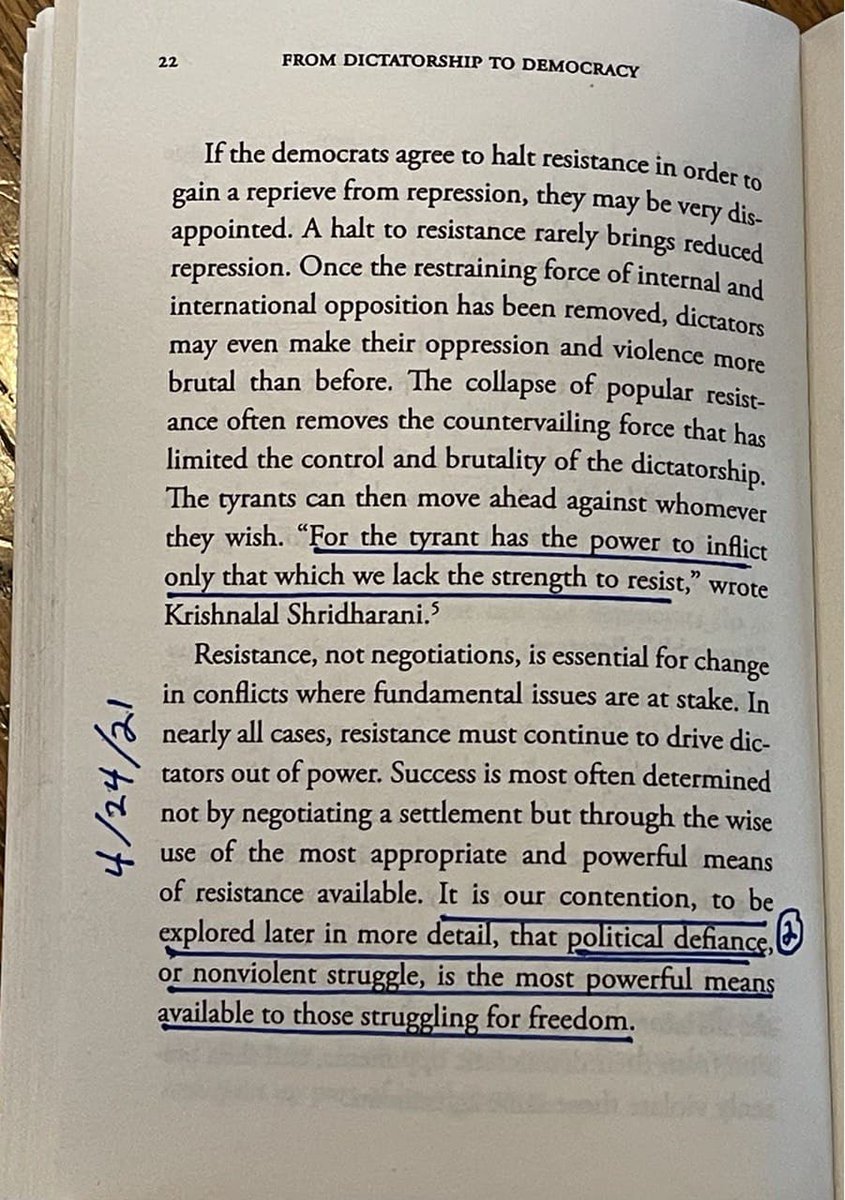
26 April 2021 #MAGAanalysis
FDTD – Chapter 3: Whence Comes the Power – Part 2
Although I knew it before, I learned all over again this morning why authors so often write their books sitting inside a fabulous library somewhere. I spend a lot of money on books but NOT this much!



FDTD – Chapter 3: Whence Comes the Power – Part 2
Although I knew it before, I learned all over again this morning why authors so often write their books sitting inside a fabulous library somewhere. I spend a lot of money on books but NOT this much!




2) Today's essay is constructed around Sharp's footnote numbers 8, 9, & 10. The bad news is that I was unable to find either free online PDFs or inexpensive copies of Deutsch or Machiavelli. The good news is I found a $1.20 version of Austin!
3) Sometimes, just having the paragraph before and the paragraph following a given quote transforms your understanding of the quote itself. It's more than just context, it's also momentum. What is the author's real goal, his destination? What are his values and assumptions?
4) As I mentioned yesterday, I LOVE the fact that Sharp has included Machiavelli. Not only is Machiavelli's The Prince located on my recommended reading list, I am steeped in his philosophy and have thought Sharp to be a fellow student of his for some time now.
5) Those who share influences share both values and modes of thinking. Not that he needs it but Sharp's use of Machiavelli raises his stock even higher in my book. On that note, let's get the technical stuff about book buying and access over right now, next...
6) Wow. That was a time hole. I did find and buy a copy for just $14. Very cool. But once I did so, I could not get the link to share it with you. There is great confusion at Amazon over specific translations. The Sharp indicated version is translated by Leslie J. Walker.
7) My copy is supposed to be delivered on Wednesday. Assuming success, I'll let you know if there's any additional context I discover on point. Again, I apologize for the effort required just to find the right copy of the book. Let's get back on actual topic, now...
8) “… who has the public as a whole for his enemy can never make himself secure; and the greater his cruelty, the weaker does his regime become.”
9) Machiavelli wrote 500 years ago. Livy died over 2,100 years ago. Our founders absolutely studied both these sources deeply. That's what makes all the arduous effort to win that knowledge back so worthwhile.
10) Turn now to Austin, undoubtedly another source our founders studied. Here's Sharp's description:
"...Austin described the situation of a dictatorship confronting a disaffected people. Austin argued that if most of the population were determined to destroy the government...
"...Austin described the situation of a dictatorship confronting a disaffected people. Austin argued that if most of the population were determined to destroy the government...
11) "...and were willing to endure repression to do so, then the might of the government, including those who supported it, could not preserve the hated government, even if it received foreign assistance. The defiant people could not be forced back into obedience and submission."
12) If you have ever wondered why so many schools from elementary through post-graduate have moved away from teaching our 1776 Revolution, look no further. That fighting spirit is precisely what must be suppressed for our current tyranny's benefit.
13) And now, Deutsch from 1953:
"Totalitarian power is strong only if it does not have to be used too often. If totalitarian power must be used at all times against the entire population, it is unlikely to remain powerful for long.
"Totalitarian power is strong only if it does not have to be used too often. If totalitarian power must be used at all times against the entire population, it is unlikely to remain powerful for long.
14) "Since totalitarian regimes require more power for dealing with their subjects than do other types of government, such regimes stand in greater need of widespread and dependable compliance habits among their people;
15) "...more than that they have to be able to count on the active support of at least significant parts of the population in case of need."
16) The truth is that freedom's history is one of stark clarity. As we have considered many times, its ultimate turning point was the founding of our nation, based upon the ideas, principles, the very philosophy of freedom itself. It is these ultimate values we're leaving behind.
17) How profound are these questions? How do we discover their impact upon our own individual lives, and the living reality of the institutions and organizations, the families we are members of right now?
18) I propose that, along with Sharp, we must replicate the knowledge and deep understandings of our forefathers. We must plunge into the very maelstrom of their learning, and the decisions and actions they took in order to pass our freedoms forward to us.
19) As we get to know Gene Sharp and his work better, we'll be discovering a man who literally carried the weight of the world's oppression on his shoulders, giving his entire life's work to empowering those oppressed to throw of the burdens of their oppressors.
20) We'll pick up the momentum of Sharp's work itself, with no further references to external sources tomorrow. And no matter what, we will prepare ourselves for the battle of our own generation, in order to pass America's freedom forward forever.
Thread ends at #20.
Become a fellow student of freedom with us at Telegram. No discussion could possibly be more important!
t.me/TheConsigliori
Become a fellow student of freedom with us at Telegram. No discussion could possibly be more important!
t.me/TheConsigliori
• • •
Missing some Tweet in this thread? You can try to
force a refresh




















